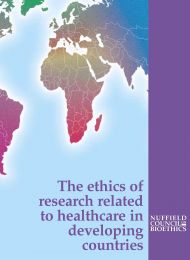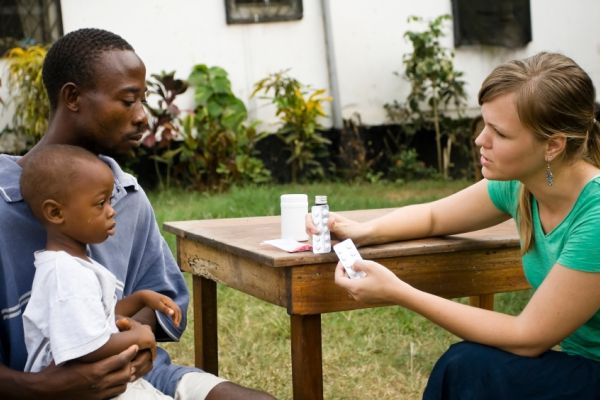The ethics of research related to healthcare in developing countries
Report
Published 24/04/2002

Research ethics committees
An effective system for ethical review of research proposals is a crucial safeguard for participants. However, properly functioning research ethics committees (RECs) are often absent, ineffective or under-resourced in developing countries. In addition, there may not be enough trained and independent people to serve on a committee.
What types of review should be required?
We recommend that each proposal should receive three levels of assessment:
- relevance to healthcare priorities within the country
- scientific validity
- ethical acceptability
We conclude
Scientific and ethical review should, where possible, be undertaken separately because they serve different purposes. This may, but will not necessarily, require the establishment of two committees.
Where should ethical review take place?
All developing countries should have a properly functioning system for the independent ethical review of research. If an independent national REC is the most appropriate way to review externally-sponsored research, we recommend that the Government should be responsible for establishing and funding the committee.
We conclude
It is important that both the country in which the research is to be conducted and the sponsor providing funding should be satisfied about the ethical acceptability of research. We therefore recommend that externally-sponsored research projects should be reviewed both in the local country(ies) and in the sponsor’s country(ies).
There should be mechanisms in place to allow the committees to negotiate if there is disagreement between them.
Who should fund research ethics committees?
Many RECs in developing countries have very limited financial and administrative support. Some may receive funding from government, while others levy fees for reviewing protocols.
We conclude
It is crucial that RECs are independent. There is a need for creative approaches for providing support for RECs, without compromising their independence. Sponsors should be responsible for meeting the costs of reviewing externally sponsored research in an appropriate manner.
Developing capacity
Local expertise in healthcare-related research is generally very limited. Externally sponsored research has the potential to allow regional scientists to develop skills and expertise. Partnerships between scientists from developed and developing countries can help to build capacity. The development of expertise in ethical review is also urgently required.
We conclude
Sponsors of research should require that the development of local expertise in healthcare is an integral component of research proposals.
Consideration should also be given to longer term issues – it is important to ensure that improvements to healthcare facilities are sustainable once the research is over.
International organisations should help to strengthen research ethics committees by expanding initiatives that assist with training and monitoring.

Share